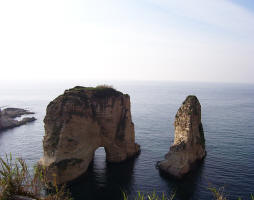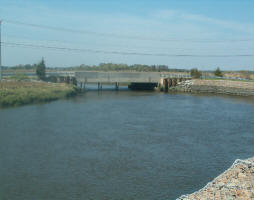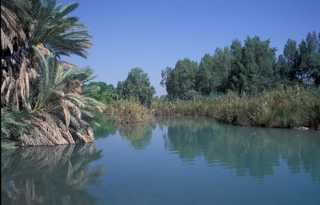 Horizon 2020 Capacity Building/Mediterranean Environment Programme: “National capacity building activity on Green Public Procurement Procedures”
Horizon 2020 Capacity Building/Mediterranean Environment Programme: “National capacity building activity on Green Public Procurement Procedures”
Introduction - The Horizon 2020 Initiative
The “Horizon
2020 Initiative” aims to de-pollute the Mediterranean by the year 2020 by
tackling the sources of pollution that account for around 80% of the overall
pollution of the
Horizon
2020 was endorsed during the Environment Ministerial Conference held in
- Identification of projects to reduce the most significant sources of pollution.
- Identification of capacity-building measures to help neighbouring countries create national environmental administrations that are able to develop and police environmental laws.
-
Use of the EC’s research budget to develop greater knowledge of
environmental issues relevant to the
- Develop indicators to monitor the success of Horizon 2020.
H2020
is made up of the following components: monitoring, reporting and research
(RMR); investment; and capacity building. Under each component, a project is
currently being run. H2020 Capacity Building/Mediterranean Environment
Programme (H2020 CB/MEP) is the project aiming at enhancing the capacities to
address pollution problems at institutional and society level. In addition,
through the H2020 MEP, a Hot Spot Investment Programme (HSIP) for the West
Balkans and
The framework - Horizon 2020 Capacity Building/Mediterranean Environment Programme
Obviously pollution is expected to be substantially reduced through the installation and proper functioning of major infrastructures (e.g. sewage treatment plants), installing pollution reduction technologies in industries, etc. However, this won’t work if institutional and individual capacities are not in place. This is what the H2020 CB/MEP aims to enhance by operating within the existing and developing policy instruments, and supporting the implementation of the commitments undertaken in the framework of the ENP as well as other regional agreements e.g. of the Barcelona Convention, while cooperating, coordinating and synergising with all relevant (EU and other) programmes.
Aims and objectives
The main objective of this project is to support the implementation of Horizon 2020 with a special focus on environmental mainstreaming. It aims to address the following problems:
- low political priority given to the environment;
- insufficient integration of environment in the different sector policies (agriculture, tourism, transport or energy) and lack of inclusion of the different actors from local to international level;
- Insufficient capacities and resources at institutional and civil society level.
More specifically, the purpose is to support the implementation of the Horizon 2020 Initiative Road Map and Work Plan through capacity building and awareness raising activities, and to promote integration of environment issues in other sectors policies.
Partners
This project is funded by the European Union and
implemented by the National and Kapodistrian University of Athens (NKUA) in
consortium with: Mediterranean Action Plan of the
Partner Countries
The Partner countries are: Albania, Algeria, Bosnia- Herzegovina, Croatia, Egypt, Israel, Jordan, Lebanon, Montenegro, Morocco, Occupied Palestinian Territory, Syria, Tunisia, Turkey.
Course Description – Green Public Procurement Procedures
Introduction to the training course
The Croatian Public Procurement Act was adopted in October of 2007 (harmonised with the EU acquis communautaire). The Strategy for the development of the Public Procurement System and the Action Plan for its implementation were adopted by the Government in June 2008. Furthermore, the Government has adopted a training and technical education programme for the public procurement system, the implementation of which is under the jurisdiction of the Ministry of Economy, Labour and Entrepreneurship, Public Procurement Directorate.
This
two-day seminar is to be organised in the framework of the H2020 CB/MEP program
with the technical assistance of the UNEP/MAP CP/RAC in order to respond to the
capacity building needs of the Croatian Government to shift from public
procurement to green public procurement. It will take place in
The working language will be English with translation into Croatian (if need be).
Target group
The module is specifically designed for approximately 40 participants:
- Representatives of the Central Office for Public Procurement and Ministry of Economy;
- Representatives of the different Procurement Departments of the Ministries;
- National trainers on public procurement;
- Representatives of Business Organizations and the Chamber of Commerce.
Learning objectives
This module is
designed to strengthen capacities regarding Green Public Procurement (GPP) implementation and to facilitate the shift to Green Public
Procurement in
The seminar will
assist participants in establishing related recommendations for
Attending this course, the participants will be capable to train registered public procurement trainers in related topics.
Methodology and Structure
The course is intended to be participatory and interactive, making use of professional learning tools such as:
- Lectures
- Group- and plenary discussions
- Case studies
Learning outcomes of the training course
The participants will be informed and will gain knowledge on the following:
- What is GPP and how it introduces environmental and social concerns into the tendering process for goods and services, contributing to a more sustainable use of natural resources and raw materials;
- Criteria for identification and implementation of appropriate techniques for GPP;
- The situation with regard to GPP in other countries of the Mediterranean region;
- How to evaluate an offer of sustainable products and services in the Croatian market;
- Which are the available eco-labels;
- How to select and include environmental criteria in public tenders for different categories of products and services;
- How to select suppliers, service-providers and contractors from a “sustainable point of view” - not only considering economic criteria but including green standards;
- Success case studies on how GPP “greens” the market and increases offers of sustainable products creating opportunities for "green economies" and boosting the competitiveness of the industry by stimulating innovation in eco-technologies or examples of implementation of SPP action plans.
A preliminary overview of the course is given below:
- Formal lectures will give insight on the GPP theory: what the benefits of its adoption and implementation are, what the benefits and the challenges related to Sustainable Public Procurement implementation are, etc. A case study focusing on the actual implementation of GPP in a European Country, together with the presentation of the actual situation of GPP in the region will complement the lectures.
- A lecture will introduce the Life Cycle analysis. Concrete examples will be discussed for participants to understand the need of taking into account the four main categories of life cycle cost (acquisition, maintenance, operations and end-of life costs). This is to improve the conventional LCC technique which is the one mostly used by companies and/or governments and usually based on a purely financial valuation.
- The legal guidance, providing clear examples of how and where to integrate environmental criteria into the public procurement process, while fully respecting European public procurement law and taking into account national market characteristics, will be another topic analysed through a formal presentation.
- The practical training on the use of the EU training toolkit on Green Public Procurement will enable participants to implement the recommendations given during the course as a real case for a set of product/services groups.
| Contact information | n/a |
|---|---|
| Event type | Seminar |
| File link | n/a |
| File link copy |
|
| Source | MIO-ECSDE |
| Subject(s) | INFORMATION - COMPUTER SCIENCES , METHTODOLOGY - STATISTICS - DECISION AID , NATURAL MEDIUM , PREVENTION AND NUISANCES POLLUTION , RISKS AND CLIMATOLOGY , TOOL TERMS , WATER QUALITY |
| Relation | http://www.semide.net/initiatives/horizon2020 |
| Geographical coverage | Croatia, |
| Address | Zagreb |
| Organizer | MIO-ECSDE |
| Target audience | Regional |
| Period | [12/04/2011 - 13/04/2011] |
| Status | Confirmed |
| Working language(s) | ENGLISH |
 you are not logged in
you are not logged in





